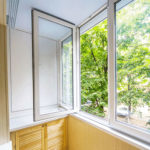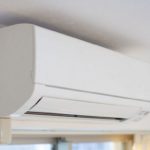1. The ideal air conditioner temperature is 26 degrees Celsius
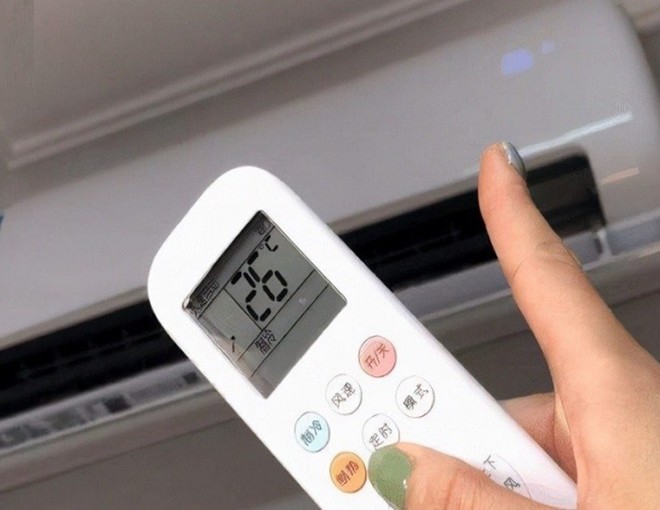
Although the human body can regulate its temperature to an extent, this ability has its limits. If the temperature difference between indoors and outdoors is too extreme, it can lead to health issues.
It is recommended to maintain a temperature difference of around 8–10 degrees Celsius between the indoor and outdoor environments. During hot summer days, setting the air conditioner to 26 degrees Celsius is a reasonable approach to prevent illness. Additionally, by keeping the temperature difference minimal, you can also conserve energy.
2. The optimal height for air conditioner installation is 1.7 meters
Typically, the air intake vent of an air conditioner is located in the upper half, while the air outlet vent is in the lower half. If the unit is installed too high, the cold air that has undergone heat exchange will be sucked back into the air conditioner before it reaches the lower part of the room. Conversely, if installed too low, although the room will cool down quickly, it may cause discomfort such as aches and back pain due to excessive exposure to cold air.
According to Professor Dai Zizhu, a researcher at the Institute of Environment under the China Center for Disease Control and Prevention, installing the air conditioner slightly above head height is optimal for human health. Therefore, for a balanced environment, it is best to install the unit at a height of approximately 1.7 meters.
3. Utilize the automatic function during the summer
During the summer, switching your air conditioner from “cooling” (Cool mode) to “automatic” (Auto mode) not only keeps your home comfortably cool but also saves energy and reduces potential health risks.
Both the automatic and cooling functions can lower the indoor temperature, but their power consumption differs significantly. When using Auto mode, the air conditioner automatically adjusts the room temperature based on the outdoor conditions, creating a comfortable and safe environment without drastic temperature differences that could cause discomfort or heat stress. This mode is also the most energy-efficient.
On the other hand, the Cool mode rapidly lowers the room temperature and maintains a stable environment, regardless of the outdoor weather. This mode consumes more energy compared to Auto mode.
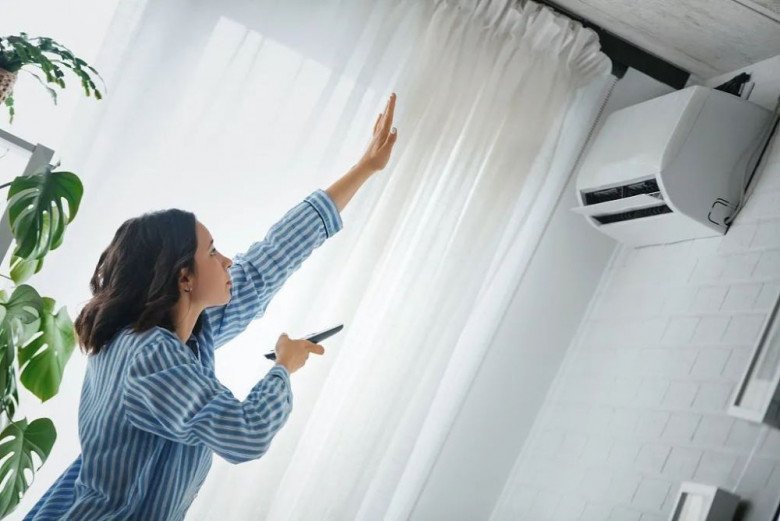
4. Open the windows after 3 hours of air conditioning
If you don’t open the windows for ventilation after 3 hours of using the air conditioner, the indoor air quality may suffer. When the air remains unchanged for 6 hours, it becomes severely polluted, and the level of pollution can be detrimental to your health.
If you experience difficulty breathing, catch a cold, feel sleepy, or notice a decrease in your reaction time, it may be due to prolonged exposure to enclosed spaces and insufficient oxygen intake. Therefore, after 3 hours of using the air conditioner, it is advisable to open the windows for 10-15 minutes to allow fresh air to circulate.
5. When using the fan mode, keep the fan blades pointing upward
When the fan mode is activated, ensure the fan blades are pointing upward so that the cold air flows parallel to the ceiling. This prevents the cold air from blowing directly onto your body and allows for a gradual and natural cooling of the room.
6. Place a bucket of water indoors when using the air conditioner
Prolonged exposure to air conditioning can dehydrate your skin and respiratory tract, leading to dry skin and an itchy throat. To counteract this, place a bucket of water inside the room, which can effectively alleviate dry eye and skin symptoms. Even if you use the air conditioner while sleeping, you’ll wake up the next morning without a dry mouth.
7. Sleep on your side when in an air-conditioned room
People who sleep in air-conditioned rooms often experience throat discomfort upon waking up in the morning.
Under normal circumstances, humans breathe through their nasal cavity. However, when sleeping at night, many people breathe through their open mouths, especially when lying on their backs. This not only increases the likelihood of inhaling dust but also causes air to move back and forth within the body, resulting in a dry mouth and throat upon waking.
Therefore, it is recommended to sleep on your side to avoid breathing through your mouth and prevent dryness in the mouth and throat.
8. Turn on the air conditioner before closing the windows
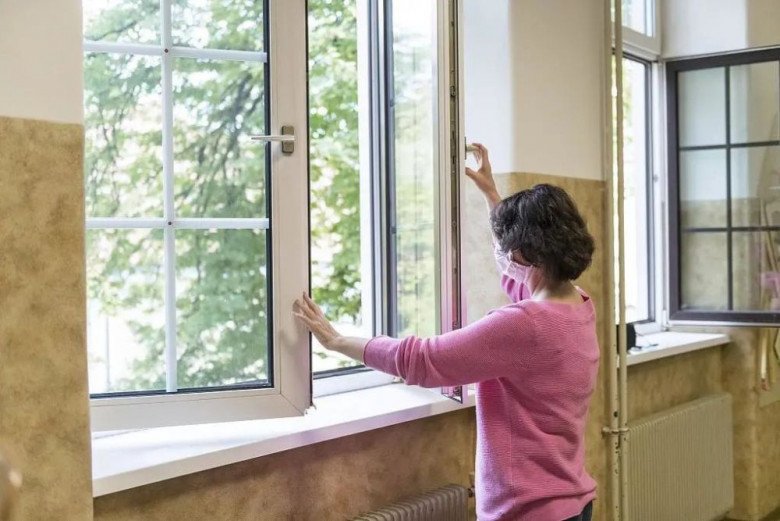
Another important tip when using an air conditioner is to turn it on before closing the windows. To be more specific, turn on the air conditioner, wait for any pollutants to be expelled, and then close the windows. This practice can help prevent respiratory problems such as asthma.
9. Avoid turning off the air conditioner for short periods
To save energy, some people turn off the air conditioner when they leave the house and turn it back on when they return. However, this practice not only consumes more energy but can also damage the air conditioner and reduce its lifespan. Each time the unit is turned on, it needs to restart, and frequent restarts can lead to compressor damage and increased energy consumption.
Therefore, if you’re stepping out for a short duration, such as an hour or less, it’s best to leave the air conditioner running.
10. Refrain from immediately turning on the air conditioner when entering the house
Many people rush to turn on the air conditioner as soon as they enter their homes, especially on hot days. However, doing so can cause blood vessels to constrict suddenly, leading to a sudden increase in blood pressure and potentially triggering cardiovascular issues.
It is advisable to wait for your body temperature to normalize before turning on the air conditioner after coming indoors.
“A Quick and Effective Guide to Eliminating Beer and Liquor Odor from Your Room”
“The lingering stench of alcohol can be a real downer, but fear not! Our expert guide will show you how to banish those beer and booze odors from your space swiftly and effectively. Say goodbye to those embarrassing aromas and hello to a fresh-smelling haven with our simple yet powerful tips and tricks.”
A little creative flair can go a long way!


























